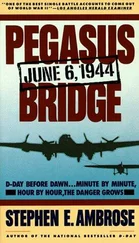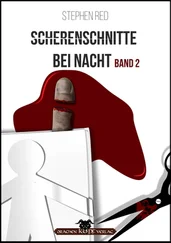Stephen Ambrose - Band of Brothers
Здесь есть возможность читать онлайн «Stephen Ambrose - Band of Brothers» весь текст электронной книги совершенно бесплатно (целиком полную версию без сокращений). В некоторых случаях можно слушать аудио, скачать через торрент в формате fb2 и присутствует краткое содержание. Жанр: История, на английском языке. Описание произведения, (предисловие) а так же отзывы посетителей доступны на портале библиотеки ЛибКат.
- Название:Band of Brothers
- Автор:
- Жанр:
- Год:неизвестен
- ISBN:нет данных
- Рейтинг книги:4 / 5. Голосов: 1
-
Избранное:Добавить в избранное
- Отзывы:
-
Ваша оценка:
- 80
- 1
- 2
- 3
- 4
- 5
Band of Brothers: краткое содержание, описание и аннотация
Предлагаем к чтению аннотацию, описание, краткое содержание или предисловие (зависит от того, что написал сам автор книги «Band of Brothers»). Если вы не нашли необходимую информацию о книге — напишите в комментариях, мы постараемся отыскать её.
Band of Brothers — читать онлайн бесплатно полную книгу (весь текст) целиком
Ниже представлен текст книги, разбитый по страницам. Система сохранения места последней прочитанной страницы, позволяет с удобством читать онлайн бесплатно книгу «Band of Brothers», без необходимости каждый раз заново искать на чём Вы остановились. Поставьте закладку, и сможете в любой момент перейти на страницу, на которой закончили чтение.
Интервал:
Закладка:
But to the majority, neither jocks nor career soldiers, it was a bore. They found their outlets in four other ways: as tourists in the Alps, hunting, drinking, and chasing women. The Zeller See, a lake some 4 kilometers in length and 2 in width, was a breathtaking bit of beauty, and a joy to swim in on the long, sunny days of late May and early June. "My bathing suit is getting quite a workout," Webster wrote his mother on May 20. "Will you please mail me another of very gaily colored trunks from Abercrombie and Fitch as quickly as possible? Waist 32, preferably shorts, not trunks."
On the mountain behind Kaprun there was a ski lodge. The chair lift to the lodge was kaput, but it could be reached by climbing the mountain trail. Winters set up a program to rotate one platoon every three days to the lodge for R and R. At the lodge there were Austrian servants and cooks, ski instructors, and hunting guides. The skiing was fabulous; so was the hunting for mountain goats.
There were deer at a lower level, hundreds of them, as this was a prime hunting area for the European aristocracy. The 101st was at the end of the pipeline in the distribution of food. Everyone from the ports of Cherbourg and Le Havre right on down the pipeline had a crack at the food first, and they all had civilian girlfriends to take care of and a flourishing black market to tempt them. So not enough food was getting to the Alps. The paratroopers went out in hunting parties for deer,- venison became a staple in the diet. Private Freeman got a Browning shotgun and supplemented the venison with quail and other birds.
"Women, broads, dames, beetles, girls, skirts, frails, molls, babe, frauleins, Mademoiselles: That's what the boys wanted," Webster wrote. He went on to describe the results: "The cooks were keeping mistresses; the platoon lovers were patronizing the barn; McCreary had a married woman in town; Reese installed his in a private house; Carson fed an educated, beautiful, sophisticated Polish blond (whom he later married); the platoon staff visited a D.P. camp nightly; and in Zell am See, home of the most beautiful women in Europe, the lads with the sunburned blondes were fulfilling their dreams—after talking about women for three years, they now had all they could want. It was the complete failure of the non-fraternization policy."
For those who had wanted and could afford them, there had been women in London, Paris, along the Ruhr, but, Webster observed, "in Austria, where the women were cleaner, fairer, better built, and more willing than in any other part of Europe, the G.I.s had their field day."
The flow of booze was never ending. On May 28, Webster wrote his parents, "Since leaving Berchtesgaden, we've had a bun on every night. Two days ago we hijacked a German Wehrmacht warehouse to the tune of a couple of cases of gin—forty-eight bottles all told. Your package with the orange juice powder, therefore, came in very handy."
Captain Speirs had only one standing order about the drinking—no drunkenness outside. This was strictly enforced by the sergeants, who wanted no incidents with drunken soldier boys on guard duty, or just wandering the streets and mountain paths. In their quarters, however, the men were free to drink all they could hold. Most of them drank more than that.
Webster's squad kept a pitcher of iced tea and gin full and handy. Each night, he wrote, "by eight o'clock Matthews was lisping and stuttering; Marsh was bragging about his squad and how they obeyed him; Sholty was sitting quietly on a bed, grinning; Winn was laughing and shouting and talking about Bastogne; McCreary was boasting of his courage ('There ain't nobody in this platoon braver than I am buddy') with immodesty but complete truth; Gilmore was pressing clothes furiously, a peculiar and most welcome manifestation of his high spirits,- Hale slobbered and poured himself another drink; Chris, who never got rowdy, sat back in cold silence; Rader had passed out in the armchair; and I, who had passed out gracefully and without a struggle, was sound asleep."
The lads would work off their hangovers with an afternoon swim or game of softball. Winters was a nondrinker, who neither approved nor disapproved of drinking; his two best friends, Welsh and Nixon, were heavy drinkers. He never berated anyone for getting drunk on his own time. Had he ever been tempted to do so, he got a reminder each afternoon of why these excesses were taking place. The boys would wear shorts and nothing else in the warm sun while they played softball. Nearly every one of them had at least one scar. Some men had two, three, or even four scars on their chest, back, arms or legs. "And keep in mind," he concluded, "that at Kaprun I was looking only at the men who were not seriously wounded."
There was another reminder of the price that E Company and the others had paid to get to where they were. On June 5, at 2200 hours, the men celebrated the first anniversary of their jump into Normandy. Webster was struck by the contrast. A year earlier, at 2200 hours, "My heart was beating like Gene Krupa's drum and my stomach was tied up and very empty... . Now I am sitting in a cosy house in the Austrian Alps. I have a tall glass of iced tea and gin in one hand, my pen in the other. A lot of boys who took off from that Devonshire airport are dead, buried in lovely cemeteries in Ste. Mere-Eglise, Son, and in Belgium, but I'm still here and very thankful for it and tonight we shall remember them in a way they would have thought most fitting— by having a wild, noisy party."
The officers too were having an on-going party. Speirs had snatched a couple of cases of fine brandy, which he enjoyed in his living quarters with a beautiful Polish D.P. and her small child. Colonel Sink gave some memorable parties at his HQ, the Hotel Zell. One night he invited all 506 officers to meet General Taylor and his staff. It was a bash. Colonel Strayer, who according to Lieutenant Foley "could put away quite a bit of liquor, got a little rambunctious." He got into a fistfight with a general. Lieutenant Foley and a couple of others got a bright idea. They went to the parking lot and siphoned most of the gas from General Taylor's Mercedes (it had belonged to Hitler). They thought it would be very funny when he ran out of gas on his way back to Berchtesgaden in the middle of the night.
The next morning, Sunday, Colonel Sink ordered a special Officers Call. They assembled outside the hotel. Sink laid into them. He said their behavior was disgraceful. He touched especially on the brawling and on the practical joke. He had just gotten off the phone with General Taylor, whose car had run out of gas and who had sat there for hours while his driver searched for a jerrican. Foley, who did not confess, reported that "Sink didn't give a damn whether enlisted men stopped and listened, he was angry and he didn't care who heard him give everyone of us hell, spelled H-E-L-L."
Sink never stayed mad long. A week later he laid on a huge Fourth of July celebration. But on the Fourth it rained, and again on the fifth. Never mind: the sixth was a beautiful day and the celebration began. "Sink on the Sixth," the men called it.
There were athletic events of all kinds. Gliders and sail planes sailed across the lake, riding the mountain currents. Troop Carrier Command lent the regiment a C-47 for the afternoon, and there was a jump of twelve men into the lake. Food and drink was plentiful. In the park, local musicians dressed in lederhosen played all the oomp-pa-pa tunes. The G.I.s requested pop songs from America, but the Austrians needed practice. Everyone danced. All the girls wore D.P. armbands (nonfraternization applied only to Germans and Austrians; D.P.s were exempt; the armbands D.P.s wore to distinguish themselves were lavishly distributed to the local mountain girls) but, as Lieutenant Foley remembered it, "there wasn't one Displaced Person at the celebration."
Читать дальшеИнтервал:
Закладка:
Похожие книги на «Band of Brothers»
Представляем Вашему вниманию похожие книги на «Band of Brothers» списком для выбора. Мы отобрали схожую по названию и смыслу литературу в надежде предоставить читателям больше вариантов отыскать новые, интересные, ещё непрочитанные произведения.
Обсуждение, отзывы о книге «Band of Brothers» и просто собственные мнения читателей. Оставьте ваши комментарии, напишите, что Вы думаете о произведении, его смысле или главных героях. Укажите что конкретно понравилось, а что нет, и почему Вы так считаете.



![Stephen Ambrose - Citizen Soldiers [Condensed]](/books/346737/stephen-ambrose-citizen-soldiers-condensed-thumb.webp)
![Stephan Orth - Behind Putin's Curtain - Friendships and Misadventures Inside Russia [aka Couchsurfing in Russia]](/books/415210/stephan-orth-behind-putin-s-curtain-friendships-a-thumb.webp)





